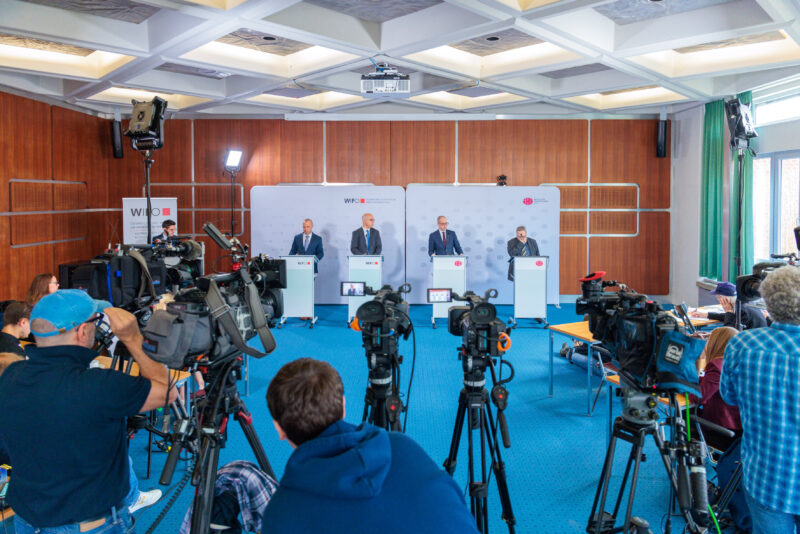
What Should Corporate Taxation Look Like in the EU?
"The approach to reforming international corporate taxation has always been to discuss the detail proposals right from the beginning rather than agreeing on reforms without clarifying what is agreed on. That has been the case for the Common Consolidated Corporate Tax Base proposal and appears to be true for the approach for the BEFIT proposal as well. I think that this is the right approach, even if it bears the risk that not much is agreed on in the end", said Simon Loretz.
The policy goals for the BEFIT are ambitious and well-intended but bring several trade-offs between them. Tackling tax avoidance will most likely come at the cost of simplicity and might affect real investment decisions. Reallocation of taxing rights can improve the fairness of the distribution of tax revenues but will imply a substantial tax revenues loss for selected member countries. Overall, it is illusionary to expect that a fundamental tax reform can take place without creating winners and losers, both at the firm-level and at member country level.
The final decision on the design of the BEFIT needs to weigh these conflicting goals against each other. As such it is not up for the academic community to put forward an ideal proposal, but to highlight the implications of the most important design features.
Starting with the scope of the BEFIT. The introduction of a separate set of tax rules for large multinationals, e. g., firms above a certain revenue threshold, can hardly be seen as a simplification of the tax system. New tax rules should be designed well enough that they can apply for all businesses. The co-existence of two set of tax rules creates additional administrative costs for the member countries and an uneven level playing field between businesses.
The single corporate tax rulebook in all member countries appears to be a desirable goal. Only noticeable differences in the economic fundamentals in the member countries should translate into different tax base definitions. For example, tax depreciation of a certain type of machinery should be identical across member countries, while the added value of harmonisation of specific tax incentives to promote certain activities (e. g., green investment or R&D investments) is more questionable. Such incentives should remain at the member countries discretion and be applied after a harmonised tax base has been calculated according to the common rules. Or in simple words: first calculate a harmonised corporate tax base according to a common definition on the most important aspects. In a second step offer member countries the possibility of additional deductions from the harmonised tax base to account for country-specific requirements and conditions. These additional tax incentives, which should be in line with the state aid rules, would be more transparent this way.
The move from separate accounting to unitary taxation will solve some problems of the existing tax system at the cost of creating new distortions. The most obvious advantages of consolidating the group-wide tax base are
-
the elimination of profit shifting and the necessity for finding arm-lengths prices, and
-
the elimination of distortions because of the lack of international loss consolidation.
However, these improvements come at the costs of
-
the need for delineating the multinational group,
-
a potential revenue loss because of international loss consolidation, and
-
the need to find a least distortive way to allocate the tax base to member countries.
The last point refers to the question of the formulary apportionment of the tax base to the member countries. The underlying idea is simple. Define apportionment factors, such as invested capital, employees or sales by destination, which will allow to allocate the tax base to the member countries according to the place where value is created. However, fact is, that whatever factors are chosen, there will be new distortions. There are two reasons for this.
-
The underlying assumption is that the factors create the same amount of tax base in each member country and over time.
-
The fact that the apportionment factors determine the tax burden, creates an incentive for multinationals to manipulate their allocation.
These two aspects have several implications. First, it is important to choose apportionment factors which are reflecting value creation and are hard to manipulate. Second, one needs to accept that formulary apportionment will bring a substantial redistribution of tax base between member countries.
One last important aspect is that the new rules will only apply to the activities within the EU. This implies that arms-length transactions with respect to the non-EU subsidiaries continue to be relevant. There is a clear benefit of harmonisation of these relations with non-EU entities.
"Overall, there is still a long way to go for a fundamental reform of international corporate taxation. Any substantial change will create winners and losers, which should be kept in mind. It is up to the policy makers to decide on these trade-offs. What should be avoided though, is to introduce too many additional complicated tax rules in a futile attempt to solve all problems at once", concluded Loretz.
Please contact




















